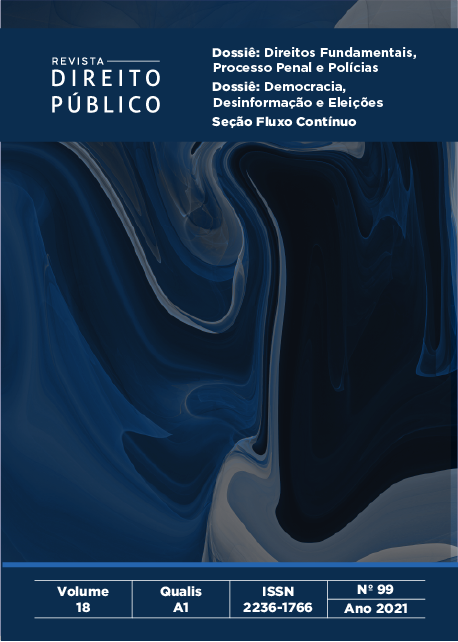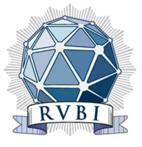Mediated Democracy – Linking Digital Technology to Political Agency
DOI:
https://doi.org/10.11117/rdp.v18i99.6056Palabras clave:
Democracy, Agency, TechnologyResumen
Although the relationship between digitalisation and democracy is subject of growing public attention, the nature of this relationship is rarely addressed in a systematic manner. The common understanding is that digital media are the driver of the political change we are facing today. This paper argues against such a causal approach und proposes a co-evolutionary perspective instead. Inspired by Benedict Anderson's “Imagined Communities” and recent research on mediatisation, it introduces the concept of mediated democracy. This concept reflects the simple idea that representative democracy requires technical mediation, and that the rise of modern democracy and of communication media are therefore closely intertwined. Hence, mediated democracy denotes a research perspective, not a type of democracy. It explores the changing interplay of democratic organisation and communication media as a contingent constellation, which could have evolved differently. Specific forms of communication media emerge in tandem with larger societal formations and mutually enable each other. Following this argument, the current constellation reflects a transformation of representative democracy and the spread of digital media. The latter is interpreted as a “training ground” for experimenting with new forms of democratic agency.
Descargas
Citas
ABBATE, J. (1999). Inventing the Internet. Cambridge, MA; London: The MIT Press Anderson, B. (1983). Imagined Communities: Reflections on the Origin and Spread of Nationalism. London; New York: Verso.
AVERBECK-LIETZ, S. (2014). Understanding mediatization in ‘first modernity’: sociological classics and their perspectives on mediated and mediatized societies. In K. Lundby (Ed.), Mediatization of Communication (pp. 109-130). Berlin; Boston: De Gruyter.
BECK, U. (1992). Risk Society: Towards a New Modernity. London: Sage
Publications.
BECK, U., GIDDENS, A., & Lash, S. (1994). The reinvention of politics: towards a theory of reflexive modernization. Cambridge: Polity Press.
BENNETT, W. L., & B. PFETSCH. (2018). Rethinking Political Communication in a Time of Disrupted Public Spheres. Journal of Communication, 68(2), 243-253. doi:10.1093/joc/jqx017.
BENNETT, W. L., SEGERBERG, A., and & Knüpfer, C. B. (2018). The Democratic Interface: Technology, Political Organization, and Diverging Patterns of Electoral Representation. Information, Communication & Society, 21(11), 1655-80. doi:https://doi.org/10.1080/1369118X.2017.1348533>10.1080/136911
X.2017.1348533.
BENNETT, W. L., & SEGERBERG, A. (2012). The Logic of Connective Action. Information, Communication & Society, 15(5), 739-768. doi:10.1080/1369118X.2012.670661.
BIMBER, B. (2016). Three Prompts for Collective Action in the Context of Digital Media. Political Communication, 34(1), 1091-7675. doi:10.1080/10584609.2016.1223772.
BRECHT, B. (1967[1932]). Der Rundfunk als Kommunikationsapparat. Rede über die Funktion des Rundfunks. In Brecht, B.: Gesammelte Werke, Schriften zur Literatur und Kunst (Vol. 18, pp. 126-134). Frankfurt am Main: Suhrkamp.
CASTELLS, M. (2009). Communication power. Oxford; New York: Oxford
University Press.
CHADWICK, A. & Stromer-Galley, J. (2016). Digital Media, Power, and
Democracy in Parties and Election Campaigns: Party Decline or Party
Renewal? The International Journal of Press/Politics, 21(3), 283-293.
doi:10.1177/1940161216646731.
CLARK, D. D. (2018). Designing an Internet. Cambridge, MA: The MIT Press.
CLARK, D. (2016). The Contingent Internet. Daedalus, the Journal of the American Academy of Art & Sciences, 145(1), 9-17. doi:10.1162/DAED _a_00361.
COULDRY, N. & HEPP, A. (2017). The Mediated Construction of Reality.
Cambridge: Polity.
COULDRY, N. & VAN DIJCK (2015). Researching Social Media as if the Social Mattered. Social Media + Society, 1-7. doi:10.1177/2056305115604174.
CROUCH, C. (2004). Post-Democracy. Cambridge: Polity.
DENARDIS, L. (2009). Protocol Politics. The Globalization of Internet Governance. Cambridge, MA: The MIT Press.
DOLL. M. (2013). Theorie und Genealogie des Techno-Imaginären: Social Media zwischen “Digital Nation” und kosmopolitischem Pluralismus [Theory and genealogy of the techno-imaginary: social media between ‘digital nation’ and cosmopolitan pluralism]. In M. Doll & O. Kohns (Eds.), Die imaginäre Dimension der Politik (pp. 49-89). Paderborn: Fink.
ELLISON, N.B. & boyd, d. (2013). Sociality through Social Network Sites. In: W. Dutton (Ed.), The Oxford Handbook of Internet Studies (pp. 151-172). Oxford: Oxford University Press. doi: 10.1093/oxfordhb/9780199589074.013.0008.
EISENSTEIN, E. L. (1979). The printing press as an agent of change:
communications and cultural transformations in early modern Europe. Cambridge: Cambridge University Press.
ERCAN, S. A., Hendricks, C. M., & Dryzek, J. S. (2019). Public deliberation in an era of communicative plenty. Policy & Politics, 47(1),19-35. doi:10.1332/030557318X15200933925405.
FARAJ, S., Azad, Bijan (2012): The Materiality of Technology: An Affordance Perspective. In P. M. Leonardi, B. A. Nardi, & J. Kallinikos (Eds.), Materiality and Organizing: Social Interaction in a Technological World (pp 237-258). Oxford: Oxford University Press.
GERBAUDO, P. (2019). The Platform Party: The Transformation of Political Organisation in the Era of Big Data. In D. Chandler D. & C. Fuchs (Eds.), Digital Objects, Digital Subjects: Interdisciplinary Perspectives on Capitalism, Labour and Politics in the Age of Big Data (pp. 187-198). London: University of Westminster Press.
GIDDENS, A. (1991). Modernity and Self-Identity: Self and Society in the Late Modern Age. Cambridge: Blackwell.
______. (1999). Risk and Responsibility. The Modern Law Review, 62(1), 1-10. doi:10.1111/1468-2230.00188.
GILLESPIE, T. (2018). Platforms Are Not Intermediaries. Georgetown
Law Technology Review, 2(2), 198-216. Retrieved from https://
georgetownlawtechreview.org/platforms-are-not-intermediaries/GLTR-07-2018/______. (2006). Engineering a Principle: ‘End-to-End’ in the Design of the Internet. Social Studies of Science, 36(3), 427-457. doi:10.1177/0306312706056047.
HABERMAS, J. (1962). Strukturwandel der Öffentlichkeit. Untersuchungen zu einer
Kategorie der bürgerlichen Gesellschaft. Neuwied: Luchterhand.
HEIDENREICH. F. (2016). Die Organisation des Politischen. Pierre Rosanvallons Begriff der “Gegen-Demokratie” und die Krise der Demokratie. Zeitschrift für Politische Theorie, (1), 53-72. doi:10.3224/zpth.v7i1.06.
HORN, E. (2009). Schwärme – Kollektive ohne Zentrum. In E. Horn & L. M. Gisi (Eds.), Schwärme – Kollektive ohne Zentrum. Eine Wissensgeschichte zwischen Leben und Information (pp. 7-26). Bielefeld: transcript Verlag.
HUBIG, C. (2006). Die Kunst des Möglichen I. Grundlinien einer dialektischen Philosophie der Technik. Technikphilosophie als Reflexion der Medialität. Bielefeld: transcript Verlag.
INGOLD, A. (2017). Digitalisierung Demokratischer Öffentlichkeiten. Der Staat, 56(4), 491-533. doi:10.3790/staa.56.4.491.
JOHNSON, D. & Post, D. (1996). Law and Borders: The Rise of Law in
Cyberspace. Stanford Law Review, 48(5), 1367-1402. doi:10.2307/1229390
KALLINIKOS, J., A. Aaltonen, Marton, A. (2010). A Theory of Digital Objects. First Monday, 15(6). https://doi.org/10.5210/fm.v15i6.3033.
KAUFMANN, M., und J. Jeandesboz. (2017). Politics and ‘the Digital: From
Singularity to Specificity. European Journal of Social Theory, 20(3), 309-328.doi:10.1177/1368431016677976
KEANE, J. (2013). Democracy and media decadence. Cambridge; New York:Cambridge University Press.
KROTZ, F. (2017). Mediatisierung: Ein Forschungskonzept. In F. Krotz,
C. Despotović & M-M. Kruse (Eds.), Mediatisierung als Metaprozess.
Transformationen, Formen der Entwicklung und die Generierung von Neuem (pp. 13-32). Wiesbaden: Springer. doi:10.1007/978-3-658-16084-5_2.
LANGLEY, P., & Leyshon, A. (2017). Platform capitalism: The intermediation and capitalization of digital economic circulation. Finance and Society, 3(1), 11-31.doi:10.2218/finsoc.v3i1.1936.
LATOUR, B. (1991). Technology is society made durable. In Law, J (Ed.), A Sociology of Monsters: Essays on Power, Technology and Domination
(pp. 103-132). London: Routledge.
LOVINK, G. (2008, September 5). The Society of the Query and the Googlisation of Our Lives. A Tribute to Joseph Weizenbaum. Eurozine. Retrieved from https://www.eurozine.com/the-society-of-the-query-and-the-googlization-of-our-lives/
LUHMANN, N. (2012). Theory of Society. Cultural Memory in the Present.
Stanford: Stanford University Press.
LUNDBY, K. (2014). Mediatization of Communication. In K. Lundby (Ed.),
Mediatization of Communication (pp. 3-35). Berlin; Boston: De Gruyter.
LYOTARD, J. F. (1979). The postmodern condition. Minneapolis: University of Minnesota Press.
MANIN, B. (1997). The principles of representative government. Cambridge: Cambridge University Press.
MARGETTS, H. (2019). Rethinking Democracy with Social Media. The Political Quarterly, 19(S1), 107-123. doi:10.1111/1467-923X.12574.
MITCHAM, C. (2014). Agency in Humans and in Artifacts: A Contested Discourse. In P. Kroes &.
P.P. VERBEEK (Eds.), The Moral Status of Technical Artefacts (pp. 11-31).
Dordrecht; Heidelberg; New York; London: Springer. doi:10.1007/978-94-007-7914-3_2.
MøLLER Hartley, J., Kleut, J., Picone, I., Pavlíčková, T., de Ridder, S. & Romic, B. (2019). Small acts of engagement: Reconnecting productive audience practices with everyday agency, New Media & Society, 00(0). 1-19. doi.org/10.1177/1461444819837569.
PLANTIN, J-C., Lagoze, C., Edwards, P. N., & Sandvig, C. (2018). Infrastructure studies meet platform studies in the age of Google and Facebook. New Media & Society, 20(1), 293-310. doi:10.1177/1461444816661553.
RECKWITZ, A. (2008). Medientransformation und Subjekttransformation. In A. Reckwitz (Ed.), Unscharfe Grenzen. Perspektiven der Kultursoziologie (pp. 159-176). Bielefeld: transcript Verlag.
ROSANVALLON, P. (2008). Counter Democracy: Politics in an Age of Distrust. Cambridge: Cambridge University Press.
THACKER, E. (2004). Networks, Swarms, Multitudes (Part one). CTheory. Available at https://journals.uvic.ca/index.php/ctheory/article/view/14542.
THIEL, T. (2018). Digitalisierung: Gefahr für die Demokratie? Ein Essay. Politikum, 4(3), 50–56. Available at http://hdl.handle.net/10419/184647.
TURNER, F. (2006). From Counterculture to Cyberculture: Stewart Brand, the Whole Earth Network, and the Rise of Digital Utopianism. Chicago; London: University of Chicago Press.
VAN DIJCK, J. (2013). The Culture of Connectivity. A Critical History of Social Media. Oxford: Oxford University Press.
VERBEEK, P. (2015). Beyond Interaction: A Short Introduction to Mediation
Theory. Interactions, 22(3), 26-31. Available at https://ris.utwente.nl/ws/portalfiles/portal/6973415/p26-verbeek.pdf.
WAGNER, P. (2008). Modernity as Experience and Interpretation: A New
Sociology of Modernity. Cambridge; Malden, MA: Polity.
______. (2016). Progress: A Reconstruction. Cambridge: Polity.
WEBER, M. (1904). Die “Objektivität” sozialwissenschaftlicher und
sozialpolitischer Erkenntnis. Archiv für Sozialwissenschaft und ozialpolitik, 19(1),22-87. Available at https://nbn-resolving.org/urn:nbn:de:0168-ssoar-50770-8.
ZUCKERMAN, E. (2014). New Media, New Civics? Policy and Internet, 6(2), 151-168. doi:10.1002/1944-2866.POI360.
Publicado
Cómo citar
Número
Sección
Licencia
Derechos de autor 2021 Direito Público

Esta obra está bajo una licencia internacional Creative Commons Atribución-NoComercial 4.0.
O(s)/A(s) autores(as) dos manuscritos submetidos concorda(m) com as regras a seguir:
1) Todos os autores e autoras participaram do trabalho, são responsáveis pelas ideias e conceitos nele emitidos e atestam sua conformidade com os princípios éticos exigidos.
2) Todos os autores e autoras concordam com a forma final do trabalho e em ceder os direitos para publicação nos canais de publicação da Escola de Direito do IDP.
3) Todos os autores e autoras informam que o manuscrito é de sua autoria e assumem a responsabilidade pelo trabalho, declarando que a obra a ser publicada não infringe quaisquer direitos de propriedade intelectual de terceiros.
3.1) Em caso de submissão simultânea, além da reprovação imediata do artigo e comunicação ao(s) respectivo(s) periódico(s), a Revista Direito Público se reserva o direito de não receber novas submissões de todos os autores implicados pelo prazo de 2 (dois) anos, contado a partir da data de ciência do fato.
4) Todos os autores e autoras autoriza(m) a edição de seu trabalho e cede(m) à Escola de Direito do IDP os direitos de autor para reproduzir, editar e publicar ou veicular o citado trabalho em qualquer forma midiática, resguardada a autoria, em particular sob forma digital, em arquivo eletrônico online na Internet, bem como armazená-los em seu repositório de acordo com o desenvolvimento do processo editorial. Esta concessão não terá caráter oneroso para a Escola de Direito do IDP, não havendo remuneração sob qualquer modalidade pela utilização do referido material, tendo este o caráter de colaboração científica.












